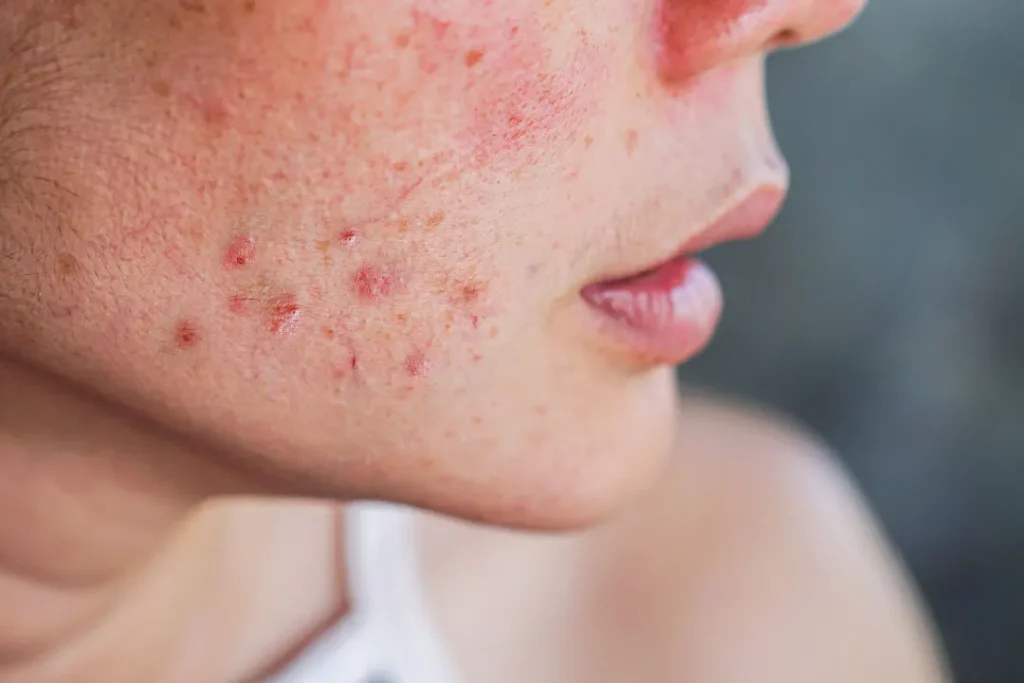Euphorbia is a large and varied genus of flowering plants within the spurge family, euphorbiaceae, with over 2000 species. It is indigenous to many places, such as the tropics, North America, Africa, and the Mediterranean. This article examines the chemistry of euphorbia, its nutritional advantages, the best dose, side effects, possible drug interactions, and responsible usage recommendations.
Chasing Calm: Adaptogens Offer Possibilities in 21st Century Wellness
7 Great Superfoods To Bring Out Your Best Physical Health And Mental Sharpness
Euphorbia: Benefits, Dosage, Side Effects, Drug Interactions, and Other Important Information is an original (NootroPicsPlanet) article.
The Nature of Euphorbia
Euphorbia is a highly diversified genus of plants that includes trees, shrubs, and annual and perennial herbs. The genus is found in a variety of biological systems around the world, including temperate zones, semi-arid areas, and tropical rainforests. Euphorbia species exhibit a remarkable variation in plant shapes, leaf kinds, and blooming structures due to their adaptation to a many environmental circumstances.
The presence of latex, a milky, sometimes poisonous secretion, is one of the distinctive characteristics of euphorbia. This latex is secreted as a defensive strategy against herbivores when the plant’s tissue is harmed. Diterpenes and polyphenols, two chemicals that also contribute to the possible health advantages of euphorbia, are responsible for the latex’s poisonous qualities.
Different types of inflorescence can be seen on euphorbias, and the genus’ distinctive cyathium flower structure is also present. Multiple male flowers, one female flower, and nectar glands are all contained within a cup-like structure that makes up the complex formations known as cyathia.

Health Benefits of Euphorbia
Euphorbia has many health advantages because of its varied chemical composition. Numerous research has proven its anti-inflammatory, antioxidant, and anticancer effects. In addition, several euphorbia species have antibacterial, antiviral, antimalarial, and anti-diabetic properties.
- Anti-Inflammatory and Antioxidant Effects: The flavonoids in euphorbia have potent anti-inflammatory and antioxidant effects that are beneficial for treating arthritis, cardiovascular disease, and even neurological disorders.
- Anticancer Properties: Studies have shown that the diterpenes found in euphorbia can induce apoptosis in a variety of cancer cell types, suggesting that they have anticancer properties.
- Antidiabetic Functions: Due to their antioxidant qualities, several euphorbia species have shown the ability to control blood glucose levels.
Chemical Constituents of Euphorbia
The diterpenoids, triterpenoids, polyphenols, flavonoids, tannins, steroids, and essential oils are the chemical components of euphorbia that are significant. Diterpenes, such as ingenol, jatrophane, and lathyrane, as well as triterpenes like cycloartane and oleanane, are the bioactive molecules in charge of their therapeutic qualities.

Physiological Properties of Euphorbia
By interacting with several cellular pathways, the substances in euphorbia demonstrate many biological properties. For instance, through encouraging protein kinase C (PKC) activation, the ingenol compounds discovered in euphorbia display anti-cancer properties. Tumor cells differentiate and die due to this process. Jatrophanes also appear to decrease P-glycoprotein, which lowers cancer cells’ multi-drug resistance.
Quercetin and kaempferol, two flavonoids in euphorbia, have anti-inflammatory, antioxidant, and anti-cancer effects. They achieve these results by removing free radicals, lowering oxidative stress, blocking inflammatory cytokines, and causing cancer cells to undergo apoptosis.
Optimal Dosage of Euphorbia
The ideal dose of euphorbia varies depending on the species and preparation technique, as well as other aspects like your age, health, and personal tolerance. For instance, the normal daily dosage of euphorbia hirta, which is frequently used to treat digestive problems, can vary from 200 to 400 mg. To ensure safe and efficient use, your healthcare provider must be consulted before beginning any Euphorbia regimen.
Side Effects of Euphorbia
Despite the fact that euphorbia has numerous potential health advantages, it is important to be aware of any side effects. Constipation, nausea, vomiting, and diarrhea are a few of them. Euphorbia can lead to allergic responses or skin rashes.
In addition, certain species of euphorbia contain a poisonous substance called euphorbin that, when swallowed or in contact with your skin or eyes, can result in serious symptoms. As a result, the plant must be handled carefully, and any usage of it must be done so under the guidance of your qualified healthcare provider.

Potential Substance Interactions with Euphorbia
Euphorbia and other compounds, including pharmaceutical medications, can interact with one another. Theoretically, it can interact with other drugs that have comparable anti-inflammatory and anti-coagulant effects, raising the risk of bleeding. The anti-diabetic properties of euphorbia can also change how diabetes drugs work. Once more, it is imperative to get expert medical advice before using euphorbia with any other drugs or supplements.
Responsible Use of Euphorbia
Despite having tremendous promise for use in a many healthcare settings, euphorbia must be utilized carefully owing to potential interactions and side effects. Its usage should always be under the direction of your medical practitioner, and using euphorbia for self-treatment should not take the place of standard medical care for serious or persistent diseases.
Euphorbia: Conclusion
If you are looking for a natural supplement that supports anti-diabetic and anti-cancer properties, you may want to try a euphorbia supplement. Despite some side effects it may have, if you follow your doctor’s advice, it could greatly benefit your health, especially if cancer or diabetes runs in your genetics and you are looking for a natural preventative. As a bonus, this supplement can also provide you with anti-coagulant properties, anti-inflammatory properties, and can even be used as an anti-oxidant supplement. Speak to your doctor if you believe this supplememt is right for you.
References:
- “Chemical constituents of plants from the genus Euphorbia”. Retrieved from: https://onlinelibrary.wiley.com/doi/abs/10.1002/ptr.2650050103
- “Euphorbia hirta: Its Chemistry, Traditional and Medicinal Uses, and Pharmacological Activities”. Retrieved from: https://www.ncbi.nlm.nih.gov/pmc/articles/PMC3931201/
- Phytochemicals of Euphorbia hirta L. and Their Inhibitory Potential Against SARS-CoV-2 Main Protease.link:https://www.frontiersin.org/articles/10.3389/fmolb.2021.801401/full
Important Note: The information contained in this article is for general informational purposes only, and should not be construed as health or medical advice, nor is it intended to diagnose, prevent, treat, or cure any disease or health condition. Before embarking on any diet, fitness regimen, or program of nutritional supplementation, it is advisable to consult your healthcare professional in order to determine its safety and probable efficacy in terms of your individual state of health.
Regarding Nutritional Supplements Or Other Non-Prescription Health Products: If any nutritional supplements or other non-prescription health products are mentioned in the foregoing article, any claims or statements made about them have not been evaluated by the U.S. Food and Drug Administration, and such nutritional supplements or other health products are not intended to diagnose, treat, cure, or prevent any disease.


